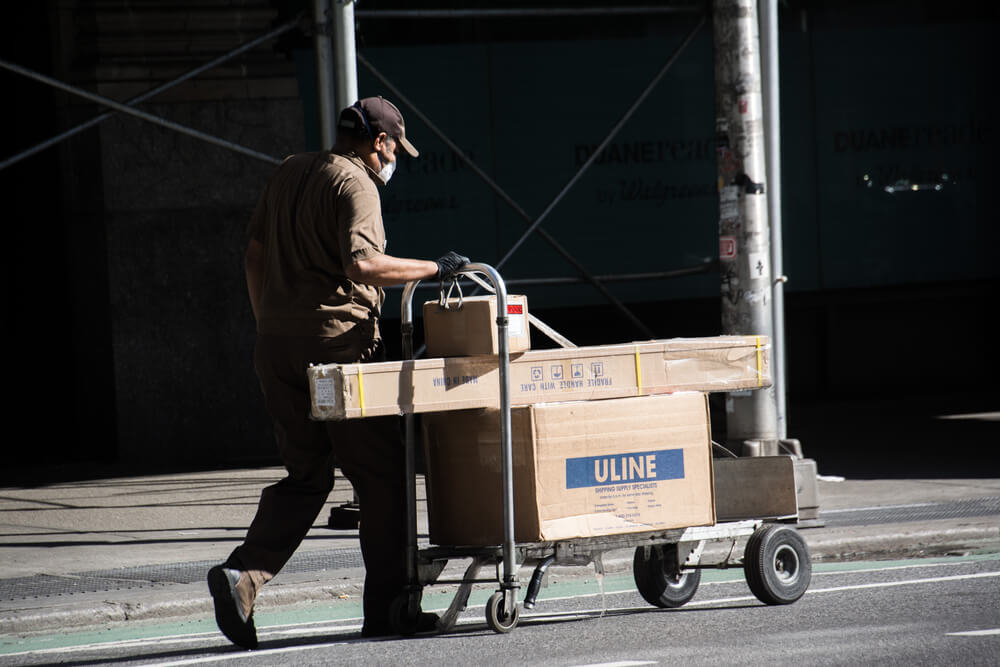Greetings, Agents of Impact!
Signals: Ahead of the Curve
American Rescue Plan brings policy support – and $1.9 trillion – to the bottom-up reconstruction. The legislation’s narrative of bottom-up prosperity for the post-COVID recovery resonates with a core thesis of impact finance: Putting more wealth and income into the hands of lower-income people is good business. The $1.9 billion rescue plan, to be signed by U.S. President Joe Biden on Friday, contains direct payments, insurance mechanisms and tax credits that will disproportionately benefit the poor. The poorest 20% of Americans, for example, will get a 20% boost in after-tax income, according to the Tax Policy Center. “Focusing on marginalized workers,” Janelle Jones, the chief economist at the Labor Department, told The New York Times, “is really the way to make sure we are lifting all boats.”
- Rethinking policy. The bill reflects the ascendance of the ‘S’ – for Share the wealth? – in ESG strategies for addressing systemic risks. That’s a reversal from former President Trump’s 2017 tax cuts, which distributed 1% of the benefits to the bottom 20% of households, while the top 20% of households took home 65%. Among this week’s lessons (h/t Anand Giridharadas): Give people money, center the poor, deprioritize large corporations, and stop worrying about deficits. What’s more, the package’s popularity is bipartisan, with support of up to three-quarters of registered voters, including 71% of independents and 59% of Republicans.
- Anti-poverty. The package takes a hatchet to U.S. poverty. According to an Urban Institute analysis, the bill will cut this year’s poverty rate to 8.7% from 13.7%, with the biggest reductions for Black and Hispanic families (caveat: major poverty-reduction programs expire at the end of 2021). Expanding the child tax credit to as much as $3,600 per child – and providing monthly cash payments – represents a prototype for the kind of “universal basic income” that may be required to mitigate widespread economic displacement.
- The Reconstruction. “Bottom-up” strategies for shared prosperity are coalescing into an investment thesis for private investors as well, as ImpactAlpha is exploring in The Reconstruction podcast series and beat coverage. Investors and intermediaries are turning to revenue-based financing and other alternative capital structures to bridge capital gaps for founders of color – and solving financing challenges for mid-tier service businesses generally. Black investors solving for climate justice in their own communities are driving climate innovation across the board. City residents are organizing neighborhood trusts to secure a stake in the growth of their communities – and keep extractive and speculative business off the block.
- Proximate leadership. In the latest episode of The Reconstruction podcast, Common Future’s Rodney Foxwoth introduces “reparative investing” as a strategy for shared power. Marguerite Casey Foundation’s Carmen Rojas talks with host Monique Aiken about “servant leadership” – listening and empowering people with the greatest proximity to the pain. Frontline Solutions’ Jessica Barron and Marion Johnson show how the mobilization of women and other voters of color expands democracy for everyone. Share this post.
Dealflow: Follow the Money
Nigeria’s Flutterwave passes $1 billion valuation with $170 million round. Three’s a herd – of African unicorns. The close of digital payments company Flutterwave’s Series C round makes it at least the third African tech company to reach a 10-figure valuation. U.S.-based investors Avenir Growth Capital and Tiger Global led the round. Companies like Flutterwave and Paystack, another Nigerian digital payments company, are helping dissolve barriers and costs of doing business across Africa’s borders and internationally.
- Pandemic push. Flutterwave, based in Lagos and San Francisco, launched in 2016 to help merchants, banks and other businesses handle digital payments across borders, payment platforms and currencies. It now has nearly 300,000 business users in 20 African countries. The company, which scored early backing from Y Combinator, saw an uptake boom in 2020 as more businesses transitioned online (see, “Post-pivots, African tech startups are peddling pandemic resilience”). TechCrunch reports that Flutterwave’s revenues more than doubled in the past 12 months.
- Nigerian ecosystem. Flutterwave’s unicorn status follows that of digital payments peer Interswitch, which scored $200 million from Visa in 2019. E-commerce platform Jumia has experienced significant valuation swings since going public in 2019. Paystack was acquired last year by Stripe for $200 million. All four are based in Nigeria, Africa’s biggest venture capital market (see, “Seed-stage is a bright spot as emerging market investors bet on the digital disruption“).
- Dive in.
Goldman Sachs commits to investing $10 billion in Black women. The investment bank is looking to invest in at least one million Black women by 2030 via a $10 billion commitment to education, healthcare, housing and entrepreneurship. One Million Black Women, which also includes $100 million in philanthropic capital, aims “to address the dual disproportionate gender and racial biases that Black women have faced for generations, which have only been exacerbated by the pandemic,” Goldman said in a statement. A council of Black women and other leaders will advise the bank. “This initiative sends a huge signal to the industry that Black women are worth investing in,” 1863 Ventures’ Melissa Bradley, a member of the advisory council, told ImpactAlpha. “If Black women are successful, our communities are as well, and we all win” (listen in to, “Learning from history to create opportunities for equitable wealth-building now”).
- Agents of impact. The 15-member advisory council includes Opportunity Finance Network’s Lisa Mensah and Hope Enterprises’ Bill Bynum (see, “Agent of Impact: Bill Bynum”), both advocates for community development financial institutions, or CDFIs. Others include actress and producer Issa Rae, Ford Foundation’s Darren Walker, and Melanie Campbell of the National Coalition on Black Civic Participation.
- Bridging the gap. Goldman Sachs estimates that closing the earnings gap for Black women could create up to 1.7 million jobs and increase U.S. GDP by up to $500 billion per year. Racism and discriminatory practices in education, housing and access to business loans and other areas have cost the economy $16 trillion since 2000, according to Citigroup.
- More.
Souls Grown Deep Foundation backs Paskho to create quality jobs for quilters in Alabama. The foundation is providing a $600,000 convertible note to Paskho, a Black-owned eco-friendly apparel company. Souls Grown Deep holds one of the largest collections of art by African American artists in the U.S. south. Paskho will open a makers pod in Boykin, AL as part of a new strategy to move all its clothing manufacturing to underserved USA communities. More than 100 artists in Souls Grown Deep’s collections have lived and worked in Boykin for four generations (see, “Souls Grown Deep Foundation to invest $1 million in artists’ hometowns”). Paskho “offers new opportunities for fair wages through high-quality jobs for a community that has faced historic discrimination and barriers to access for decades,” said Soul Grown Deep’s Maxwell Anderson. Paskho’s Patrick Robinson says the company can help “disrupt poverty and inequality by empowering makers and following sustainable practices.”
- Creative economy. The investment is part of an impact investing strategy created with Upstart Co-Lab to promote racial and social justice and economic opportunity. Souls Grown Deep says market-access strategies have helped create $500,000 in direct income for more than 50 quilters in the past six months. Separately, the foundation partnered with N.Y.-based nonprofit Nest to help quilters promote and sell products (see, “Building the handworker economy”).
- Dig in.
Dealflow overflow. Other investment news crossing our desks:
- CEI Ventures, a subsidiary of Coastal Enterprises, closes its Good Jobs Fund, raising nearly $15 million from 32 accredited investors.
- The U.K.’s CDC Group invests $20 million in Indian logistics platform Ecom Express to create 8,000 jobs, mainly for women.
- U.K.-based Resonance secures $10.4 million from Big Society Capital to purchase homes for homeless families in London.
- Euler Motors scores $4.1 million to accelerate the transition to electric vehicles in India.
- Toyota Tsusho Corporation backs Côte d’Ivoire-based fintech Moja Rise to facilitate digital payments in West Africa.
Agents of Impact: Follow the Talent
Meena Clark is promoted to principal at Obvious Ventures… Food waste nonprofit ReFED has openings for a capital, innovation and engagement specialist and a director in the U.S. or Canada… The Greater Milwaukee Foundation is hiring an impact investing manager… Illumen Capital is looking for an operations associate in the San Francisco Bay area… Accion is looking for an editorial director in the Washington-Baltimore area… 1863 Ventures is recruiting a spring cohort for its Pipeline Program… SET Ventures joins the Impact Capital Managers… TruFund holds its TruImpact Virtual Summit, Wed., March 24.
Thank you for your impact.
– Mar. 11, 2021











